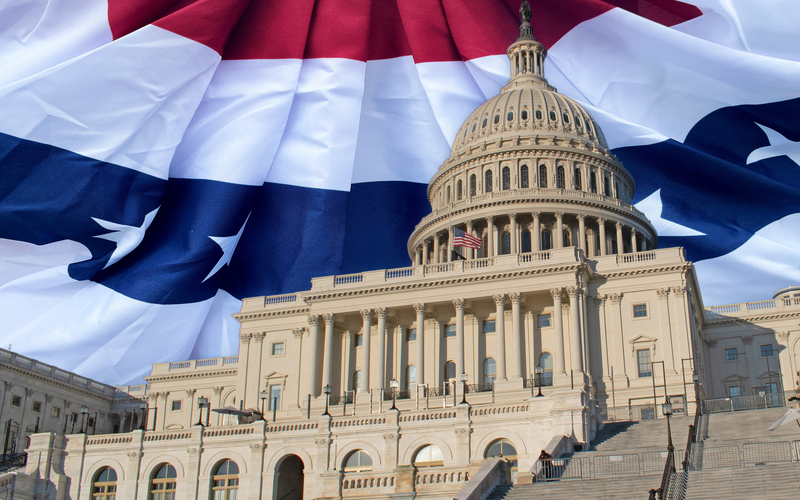The Real Chloe
Sign up for a six month free
trial of The Stand Magazine!
Chloe Cole is no stranger to the guessing game some doctors and health care providers play when it comes to the unknown dangers of affirming transgenderism. As a tween, she – with the help of many trusted medical professionals – chose to transition into a “boy,” socially and medically.
After four years of identifying as the opposite sex, Cole saw through the facade, detransitioned, and now actively fights for the rights of other children disillusioned by transgenderism. In a recent interview with The Stand, Cole shared her story.
“I think this is all a God-given miracle, and I wouldn’t be able to do it without Him,” explained Cole. “But I also wouldn’t be able to do it without the presence of my family and the wonderful people I’ve met along the way.”
The beginning
Throughout her childhood, Cole had a hard time fitting in. As the “tomboyish type,” it was difficult for her to socialize with her peers – especially women and other girls. Then one day, through social media posts, Cole was introduced to the transgender community and immediately felt a connection.
“It wasn’t like I was just viewing posts from influencers,” Cole continued. “It was mostly people my age. Real people who [were] just talking, very honestly [and] very frankly about their own lives. It gave me the sense of hope that there was an explanation for why I felt different.”
The more she learned, the more hope she gained that the transgender lifestyle was the cure for her estranged feelings. At age 12, Cole began socially transitioning by changing her wardrobe, cutting her hair, and choosing “Leo” as her preferred name.
The persuasion
Cole then wrote a detailed letter to her parents expressing her newfound feelings and desire to continue her transition. Unfamiliar with this lifestyle, her parents weren’t sure how to respond but chose to be supportive. They also sought medical professionals’ advice on how they could help their daughter.
At first, doctors labeled Cole’s situation as a mental health problem and referred her to a therapist. Unbeknownst to Cole’s parents, the therapist was “affirmative of choice” – Cole’s choice to be a boy.
As the sessions continued, Cole’s parents were not allowed in the room with her. And later, without Cole present, the therapist informed her parents that if they denied their child medical treatment, she would likely commit suicide.
“I had never expressed any sort of suicidal ideation to my doctors,” Cole continued. “They were just going off of general statistics of suicide rates within the transgender community.”
According to Dr. Ryan T. Anderson, author of When Harry Became Sally, such conversations are common in the medical field but not necessarily factual.
“Suicide attempts do not spring from nowhere, and people who identify as transgender are more likely to suffer from conditions that too often lead to suicide: depression, anxiety disorders, and substance abuse,” wrote Anderson. “These problems do not seem to be alleviated much by sex reassignment procedures.”
The change
Unaware of the truth and after being convinced by doctors, Cole’s parents felt they had no other choice than to help their daughter transition medically.
“They never really believed that I was transgender, that I was … a boy,” Cole explained. “They were [just] told that this was the only path that we had forward as a family and for my life.”
At 13, with the advice of her “trusted” medical team, Cole started taking puberty blockers and testosterone, which quickly affected her appearance, behavior, body, and emotions. By the time she started high school, she was recognized and accepted by her peers as a “boy.”
By her sophomore year, Cole had undergone a double mastectomy.
The reversal
But less than a year later, Cole regretted her decision. She realized she wanted to be a wife and mother someday.
“I want[ed] to embrace my femininity,” explained Cole. “I just wanted to have those years back. I wanted to have my body back.”
So at age 16 – four years after transitioning – Cole started to detransition.
Yet when Cole sought advice on how to detransition safely and effectively, those same doctors, who had so readily assisted in her transitioning process, were now quiet. Before taking the hormones, Cole’s doctors assured her and her parents it would be “very unlikely” she would regret her choice or choose to detransition later in life.
Anderson explained: “Doctors have no reliable way of knowing whether a particular child is among the 5% to 20% who will persist in transgender identification into adulthood or among the 80% to 95% who will eventually come to identify with their bodies – if they aren’t socially and medically encouraged to maintain a transgender identity.”
But when Cole became one of the 80% to 95% who wanted to accept her biological sex, she and her parents were left helpless and forced to navigate it all on their own “without the support of people who had initially supported” her.
“Our own doctors forsake us because they don’t want to look down at the blood on their palms and take accountability,” Cole wrote in a social media post. “Politicians look the other way because they fear what it means for their wallets.”
But Cole boldly contends that people in her shoes deserve to be seen, heard, and helped.
As she told Washington Watch, “There is no circumstance in which it’s OK to manipulate, to lie [to], to mutilate, or sterilize a perfectly healthy child.”
The reason
That is why Cole is now an outspoken activist against transgenderism. At 17, she decided to start telling her story in hopes of helping other children, teens, and detransitioners by urging the passage of protective legislation.
Cole has spoken to state legislators, schools, colleges, and universities around the country. But last year, on her 19th birthday, she had the opportunity to tell her story before Congress. She firmly believes that her voice can “shift the tides,” shape legislation, and help others like herself.
“I’m not only trying to prevent what happened to me, but I’m also trying to make an effort to help those of us who have already been affected by this, who have already been hurt,” Cole said.
A new identity
But Cole has an even deeper motivation. While readjusting to life as her true self, Cole came to faith in Christ. Although her conversion did not play a role in her decision to detransition, she does believe her decision to change was the result of divine intervention that she was unaware of at the time.
“I started to come across people of faith who were challenging me in my beliefs [about transgenderism],” Cole explained.
While detransitioning, Cole found herself searching for something that would fill the hole in her life. For so long, her search for her gender identity had “become [her] religion.”
Now, she finds her identity in Christ.
(Digital Editor's Note: This article was published first in the August 2024 print edition of The Stand. Click HERE for a free six-month subscription.)

Sign up for a free six-month trial of
The Stand Magazine!
Sign up for free to receive notable blogs delivered to your email weekly.



















